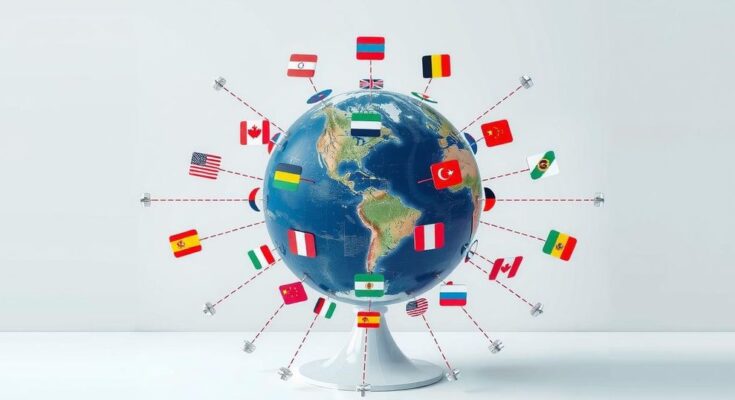The P5+1 nations are a coalition focused on addressing Iran’s nuclear ambitions. This group comprises five permanent members of the U.N. Security Council—China, France, Russia, the U.K., and the U.S.—along with Germany. Known formally as the Joint Comprehensive Plan of Action (JCPOA), they began their partnership in 2006 to negotiate with Iran regarding its nuclear activities, which gained momentum after the discovery of uranium enrichment facilities in 2002.
In 2018, the U.S. withdrew from the JCPOA under President Trump’s administration, calling it a “disaster” and promising a tougher approach toward Iran. Despite this setback, the remaining countries—China, France, Russia, Germany, and the U.K.—have continued to engage in discussions to salvage the agreement, although its viability remains uncertain.
The P5+1’s origins trace back to the EU-3 (France, Germany, and the U.K.) when they initially sought to curb Iran’s nuclear development. Following an IAEA investigation in 2003 that identified Iran’s non-compliance with the Nuclear Non-Proliferation Treaty, new negotiations began, leading to the significant 2015 deal that imposed strict limits on Iran’s nuclear program in exchange for lifting some sanctions.
The 2015 agreement outlined specific restrictions, including limiting uranium enrichment to 3.67%, constraining the number of operational centrifuges, and allowing IAEA inspections of non-military facilities. Although IAEA confirmed Iran was complying in March 2018, subsequent intelligence raised doubts about Iran’s adherence to the JCPOA amid ongoing tensions with Israel and the United States, culminating in Trump’s withdrawal.
Following the withdrawal, Iran announced it would abandon its agreement limitations but still cooperated with the IAEA. The global stage remains tense with intermittent threats of military action between Iran and the U.S. Since Biden’s presidency, discussions to rejoin the JCPOA have struggled to gain ground, reflecting a complex international dynamic that continues to evolve.
Historically, Iran was declared an Islamic Republic after the 1979 revolution led by Ayatollah Khomeini. The U.S.-Iran relationship deteriorated further following the hostage crisis that began in 1979, highlighting the longstanding complications between the two nations. Today, the P5+1 negotiations remain critical as they juxtapose the potential for regional stability against the backdrop of contested nuclear capabilities.
The P5+1 countries, including the U.S., U.K., France, China, Russia, and Germany, focus on negotiations regarding Iran’s nuclear program. The JCPOA, established to limit Iran’s nuclear activities, faces uncertainty following the U.S. withdrawal in 2018. Ongoing discussions reflect complex global dynamics, with high stakes for regional and international security.
The P5+1 nations, pivotal in negotiating the Iran nuclear deal, have faced significant challenges, especially after the U.S. withdrawal in 2018. Despite the setback, the remaining countries continue efforts to engage Iran, although uncertainty looms over the future of the JCPOA. With evolving geopolitical interactions, the outcome of these discussions could dramatically influence international relations and nuclear stability in the region.
Original Source: www.investopedia.com



